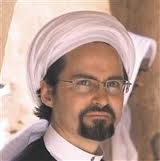The Suicide Pact of the West grows…
 Here we go again, and this is why I am adamantly against spreading this false hope. Within the past two weeks alone we have had such prominent names as Tommy Robinson and Pamela Geller, imply that Muslims are the solution to our problems with Islam. That there could be a reformation of Islam.
Here we go again, and this is why I am adamantly against spreading this false hope. Within the past two weeks alone we have had such prominent names as Tommy Robinson and Pamela Geller, imply that Muslims are the solution to our problems with Islam. That there could be a reformation of Islam.
Today’s we see that The Economist has bought into what sounds great, but is not going to happen.
Reforming Islam
Where change comes from
WHEN news came of today’s appalling terrorist attack in Paris, I was in the middle of drafting an Erasmus post with some thoughts on the question: can we expect Islam to undergo its own version of the Reformation, or to produce its own Martin Luther? The subject is addressed, in quite an intelligent way, in the latest issue of Foreign Policy, an American journal, and it is a topical one because various modern figures, from the Turkish preacher Fethullah Gulen to Egypt’s military ruler Abdel Fattah al-Sisi have been described, however improbably, as Muslim answers to Martin Luther.
For those who do not know Gulen in at least one-way is the Turkish version of America’s Zuhdi Jasser. He is either in strong denial about Islam, or blatantly misleading the public. Either way, the results are same. Islam is getting whitewashed.
Back in September Gulen issued a statement “condemning” ISIS.
ISIS Cruelty Deserves Our Strongest
Condemnation
As a practicing Muslim deeply influenced by tenets of my faith, I strongly condemn the brutal atrocities of the ISIS terrorist group. Their actions are a disgrace to the faith they proclaim and are crimes against humanity. Religion provides a foundation upon which to establish peace, human rights, freedoms and the rule of law. Any interpretations to the contrary, including the abuse of religion to fuel conflicts, are simply wrong and deceitful.
Human rights and Islam? If this were not such a serious issue, that statement would be comical.
Islam allows lashings, and slavery.
Koran 24:2:
{ ٱلزَّانِيَةُ وَٱلزَّانِي فَٱجْلِدُواْ كُلَّ وَاحِدٍ مِّنْهُمَا مِئَةَ جَلْدَةٍ وَلاَ تَأْخُذْكُمْ بِهِمَا رَأْفَةٌ فِي دِينِ ٱللَّهِ إِن كُنتُمْ تُؤْمِنُونَ بِٱللَّهِ وَٱلْيَوْمِ ٱلآخِرِ وَلْيَشْهَدْ عَذَابَهُمَا طَآئِفَةٌ مِّنَ ٱلْمُؤْمِنِينَ }
As for the fornicatress and the fornicator, that is, of those not in wedlock — because those [in wedlock] are stoned according to the Sunna (the al [in al-zāniya, ‘the fornicatress’, and al-zānī, ‘the fornicator’] according to some mentioned [opinions] is a relative [particle]; the clause [al-zāniyatu wa’l-zānī] is a subject, and because of its similarity to a conditional, the fā’ has been inserted into the predicate, which is [the following, fa’jlidū]): strike each of them a hundred lashes, [a hundred] strikes (one says jaladahu to mean daraba jildahu, ‘he struck him on the skin’). According to the Sunna, in addition to this [punishment] there is also banishment for a whole year. The slave, however, receives half of the mentioned [punishment]. And do not let any pity for them overcome you in God’s religion, that is to say, in [the fulfilment of] His rulings, by disregarding any part of their prescribed punishment, if you believe in God and the Last Day, namely, the Day of Resurrection: in this [statement] there is an incitement to [abide by] what was [mentioned] before the conditional [above] and it also constitutes the response to the latter, or [at least is] an indication of the response to it. And let their punishment, the flogging, be witnessed by a group of the believers — some say [that this should be a group of] three; some say four, as in the number of witnesses testifying to an act of fornication.
Islam also calls for the persecution of Christians and Jews, while also calling for beheadings and the taking and buying of sex slaves. I can prove these points using several translations of the Koran if need be.
What was that about peace, human rights, and freedoms? It is Islam that is the disgrace to humanity.
As for Egypt’s Al Sisi, he is openly persecuting homosexuals, and the country recently banned an annual Jewish festival.
Back to The Economist:
Today’s ghastly events in France make the question even more pressing, because some people will undoubtedly say: this is proof, if proof were needed, that Islam is incorrigibly and by its very nature violent, intolerant and incapable of accepting the liberal ideal of free speech. And if that view gains traction, many Muslims will in turn conclude that in the face of such unremitting hostility, there is no point in even trying to explain their faith to others or seeking accommodation with their neighbours. So the stakes are very high.
Islam is violent and intolerant, because its leader Mohammad was both.
Bukhari Hadith Volume 8, Book 82, Number 795:
Narrated Anas: The Prophet cut off the hands and feet of the men belonging to the tribe of ‘Uraina and did not cauterise (their bleeding limbs) till they died.
Sahih Muslim Hadith Book 019, Number 4366:
It has been narrated by ‘Umar b. al-Khattib that he heard the Messenger of Allah (may peace be upon him) say: I will expel the Jews and Christians from the Arabian Peninsula and will not leave any but Muslim.
Back to The Economist:
Nick Danforth, the Foreign Policy writer, does a decent job of deconstructing the “Luther” question and showing how posing it reflects a linear, Anglo-Protestant view of history. According to this view there is a single-file march towards secular modernity, with reforming Protestants out in front, Catholics being dragged along a bit reluctantly, and Muslims far behind. “For most of American history, it would have been self-evident to the majority of American Protestants that the celebrated separation of church and state in the United States became possible because the Protestant Reformation tamed the Vatican in the 16th century.” You don’t have to be a Protestant to argue for this sort of view; you could say, as many do, that the Reformation’s real merit was that it reduced the importance of religion in general, and ushered in a more rational world. In fact, the article counter-argues, every religion has it own trajectory and its own way of negotiating the boundary between revealed truth and changing reality; it’s not helpful to imagine a single track along which people travel at different speeds.
Here are some of my own thoughts on the subject. They have to do not with the merits, attractiveness or truth-claims of any religion, but with the way that religions in general work.
Martin Luther raised his voice against the abuse of clerical power by the Catholic authorities of his time: the ways in which sacraments (in other words, rituals which require a priest) were manipulated for cynical or venal purposes, doctrines were distorted, and ordinary people denied the opportunity to seek religious truth for themselves. He spoke with the authority of a well trained Catholic monk, versed in the Bible and in early church history. He wasn’t rejecting all religious authority, or the idea of a sacrament as a ritual in which God was present; if he had taken that uncompromising view, he probably wouldn’t have found many followers.
In my experience, Muslims’ first response to Luther’s protests is usually something like: the abuses that he addressed are never likely to arise in Islam, because Islam has no equivalent of sacraments or priests who come between man and God and monopolise certain rituals. Islam has imams or prayer leaders, but no bishops or father-confessors. (Shia Islam does have a tradition of powerful clerics, but the power they now enjoy in Iran is, arguably, a historical aberration.)
At the same time, many Muslims would stress that the “reform” or “renewal” of their religion, in the sense of cutting away unwanted accretions and getting back to Islam’s original inspiration, has been a recurring theme in their history; and they would probably agree that some reform is badly needed now. But it’s worth stressing that in neither Christianity, Islam, Judaism nor any other major religion can “reform” be equated with moderation or emollience. A stripped-down, minimalist religion can be more violent and intolerant than an elaborate one; just ask Oliver Cromwell or the Pakistani Taliban.
I have seen many people mistakenly attempt to make a comparison between Islam “reforming”, and the reformation of Christianity. Both religions have a central figure. Mohammad and Jesus. Jesus was a man of peace who did not murder, lie, and enslave like Mohammad did. So in order for Islam to reform, it would have to be rid of its central figure, Mohammad. That is never going to happen.
Bukhari Volume 9, Book 89, Number 251:
(Judgments) Narrated Abu Huraira: Allah’s Apostle said, “Whoever obeys me, obeys Allah, and whoever disobeys me, disobeys Allah, and whoever obeys the ruler I appoint, obeys me, and whoever disobeys him, disobeys me.”
The Economist:
At this point, many non-Muslims might say, “we don’t really care whether Islam is elaborate or stripped-down, we only care whether its followers can be persuaded to renounce terrorism, beheadings, and the pursuit of political power.” Well, passionate arguments against all these things are being heard within the world of Islam, although they get less publicity than the violent voices. Look, for example, at the personally courageous stance of Hamza Yusuf, an American-born scholar with a wide following in the Islamic heart-land, in denunciation of Islamic State, its aims and methods. In recent weeks some 300,000 people have used the internet to hear him condemn, in rigorously Islamic terms, the claim of IS to be authentic representatives of the Sunni creed. His voice comes from deep inside scholarly, traditional Islam, just as Luther’s came from deep inside sacramental, episcopal Christianity—and many people are listening.
I have already proven over and over that ISIS is indeed fueled by the Koran.
As for the Islamic scholar Hamza Yusuf, he pulled a Muslim Houdini when I questioned him on Islam.
As for his “non-violent” voice, apparently the author, a B.C, missed the fact that Hamza supports the death penalty for apostasy.
The Economist:
Islam will not be scolded, scorned or aerially bombed into reforming by outsiders; it is deeply immune to external pressure. But it can and will change from within, as the founding texts and traditions are reread and refracted by successive generations. Nobody can predict which way that change will go—and there is not just one, single historical path along which it will or won’t progress.
Really B.C.? Why, because you say so? Well what say do you have in the ummah (Muslim body)? Which of the four Sunni schools of Islamic jurisprudence cites you?
Hanbali, Hanafi, Maliki, or Shafi’i? Or is it the Jaʿfarī (Shia) school of jurisprudence?
I have read the Koran over and over, and guess what? It says the same thing every time. That it is not going to reform, because Allah said it wouldn’t.
Koran 10:64: Altafsir. com
{ لَهُمُ ٱلْبُشْرَىٰ فِي ٱلْحَياةِ ٱلدُّنْيَا وَفِي ٱلآخِرَةِ لاَ تَبْدِيلَ لِكَلِمَاتِ ٱللَّهِ ذٰلِكَ هُوَ ٱلْفَوْزُ ٱلْعَظِيمُ }
Theirs are good tidings in the life of this world: in a hadīth verified by al-Hākim this has been explained as [referring to] a propitious vision which an individual might have or [a vision] which another might have of that person; and in the Hereafter: Paradise and reward. There is no changing the Words of God, no failing of His promises; that, mentioned, is the supreme triumph.
Besides, how can one change “perfection”?
Koran 5:3:
{ حُرِّمَتْ عَلَيْكُمُ ٱلْمَيْتَةُ وَٱلْدَّمُ وَلَحْمُ ٱلْخِنْزِيرِ وَمَآ أُهِلَّ لِغَيْرِ ٱللَّهِ بِهِ وَٱلْمُنْخَنِقَةُ وَٱلْمَوْقُوذَةُ وَٱلْمُتَرَدِّيَةُ وَٱلنَّطِيحَةُ وَمَآ أَكَلَ ٱلسَّبُعُ إِلاَّ مَا ذَكَّيْتُمْ وَمَا ذُبِحَ عَلَى ٱلنُّصُبِ وَأَنْ تَسْتَقْسِمُواْ بِٱلأَزْلاَمِ ذٰلِكُمْ فِسْقٌ ٱلْيَوْمَ يَئِسَ ٱلَّذِينَ كَفَرُواْ مِن دِينِكُمْ فَلاَ تَخْشَوْهُمْ وَٱخْشَوْنِ ٱلْيَوْمَ أَكْمَلْتُ لَكُمْ دِينَكُمْ وَأَتْمَمْتُ عَلَيْكُمْ نِعْمَتِي وَرَضِيتُ لَكُمُ ٱلإِسْلٰمَ دِيناً فَمَنِ ٱضْطُرَّ فِي مَخْمَصَةٍ غَيْرَ مُتَجَانِفٍ لإِثْمٍ فَإِنَّ ٱللَّهَ غَفُورٌ رَّحِيمٌ }
Forbidden to you is carrion, that is, the consumption of it, and blood, that is, what has been spilt, as mentioned in [sūrat] al-An‘ām [Q. 6:145], and the flesh of swine, and what has been hallowed to other than God, in that it was sacrificed in the name of something other than Him, and the beast strangled, to death, and the beast beaten down, to death, and the beast fallen, from a height to its death, and the beast gored, to death by another, and what beasts of prey have devoured, of such animals — except for what you have sacrificed duly, catching it while it still breathes life and then sacrificing it — and what has been sacrificed in, the name of, idols (nusub is the plural of nusāb) and that you apportion, that is, that you demand an oath or a ruling, through the divining of arrows (azlām: the plural of zalam or zulam, which is a qidh, ‘a small arrow’, without feathers or a head). There were seven of these [arrows], [marked] with flags, and they were retained by the keeper of the Ka‘ba. They would use them for abitrations and when they commanded them they obeyed, and if they prohibited them they would desist; that is wickedness, a rebellion against obedience. And on the Day of ‘Arafa in the year of the Farewell Pilgrimage, the following was revealed: Today the disbelievers have despaired of your religion, of you apostatising from it, having hoped for it [earlier], for now they perceived its strength; therefore do not fear them, but fear Me. Today I have perfected your religion for you, that is, its rulings and obligations (after this [verse] nothing about [what is] lawful or unlawful was revealed) and I have completed My favour upon you, by perfecting it [your religion], but it is also said by [effecting] their safe entry into Mecca; and I have approved, chosen, Islam for you as religion. But whoever is constrained by emptiness, by hunger, to consume some of what has been forbidden him and consumes it, not inclining purposely to sin, to an act of disobedience — then God is Forgiving, to him for what he has consumed, Merciful, to him by permitting it to him, in contrast to the one who [purposely] inclines to sin, that is, the one actively engaged in it, such as a waylayer or a criminal, for whom [such] consumption is forbidden.





Excellent Chris. Muhammad = Islam = Moslems. The txt of the Koran by/from their “perfect” moslem cannot be refuted or reformed! allah (Muhammad) forbid! However…..YOU do a bloody good job with logic and their own words! Everyone should archive this. It’s a little like the cat outta the hat….gotcha!
Thanks Debs! I do it to give people the tools that are needed to win the information war with Islam, and show that hoping for Islam to reform is just a waste of valuable time. That actually empowers Islam itself.
https://www.scribd.com/doc/252004497/Reform-Reform-Islam-Islam
“Reforming” Islam is bringing it back to its roots – roots being Muhammad and the origins of the writing of its “holy books” (Quar’an, etc.). That what reform means. The Christian reformation was an attempt to make Christianity back to its original doctrines.
The so-called “radicals” are doing the reforming, They are already reforming Islam back to its core doctrines of jihad, sharia, intolerance, and conquest. That is what the original Islam is all about. The reformers deceivers, either ignorantly or purposefully. There is no “moderate Islam”, no chance of there becoming a mainstream “moderate” Islam, and no one calling himself a Muslim of any sort can be trusted due to the opposite morality they believe in and their propensity to deceive due to their doctrinal beliefs and culture.
That is why the media and others need to stop promoting this fantasy. Doing so is a slow suicide.
The Economist is sick and controlled by the British govt. that is surrendering Britain to the Muslim World without a fight. They routinely delete any posts I make, even the replies to them. Hopefully they will go out of business soon.
Of course Britain, France, Germany, and the rest of Europe brought their plight on themselves, because ever since WWII they have been run by leftist overlords who hate Europeans and their culture and are determined to have it commit suicide in a sea of unwanted unwelcome Muslim immigrations, while they treat the natives like cattle. While they have long ago judged Euros as potential or secret Nazis, they hold Muslims above judgment, talk about insane. Maybe after the Charlie Hebdo Massacre they will finally wake up and throw the overlords out, and create Fortress Europe, free of Islam forever, like in the good old days.
None of the PC media will even mention my Winslow Plan for Defeating Islam, the only plan based on the truth, which calls for the non-Muslim world to wage an all-out war until Islam as a political entity is kaput. That doesn’t stop the Web article from getting a ton of visitors from around the world. Too bad for the Muslims and their Euro puppets, the great power of the Internet will make sure that the truth is told. http://tinyurl.com/winslowplan
I did not know who owned that publication. Thanks, and keep on speaking out mate!
Asking Muslims to reform more devout Muslims is like asking Obama to reform Bill Ayers. Ain’t gonna work. They are family. The so-called “radicals” are simply the military wing of Islam who are doing the “radical” work on behalf of all Muslims. All non-apostate Muslims support the military wing of Islam.